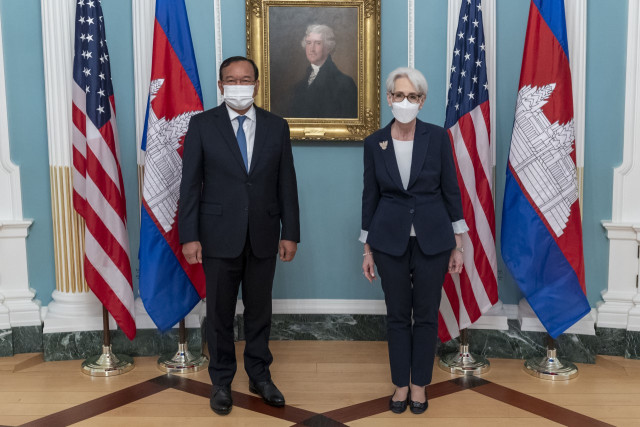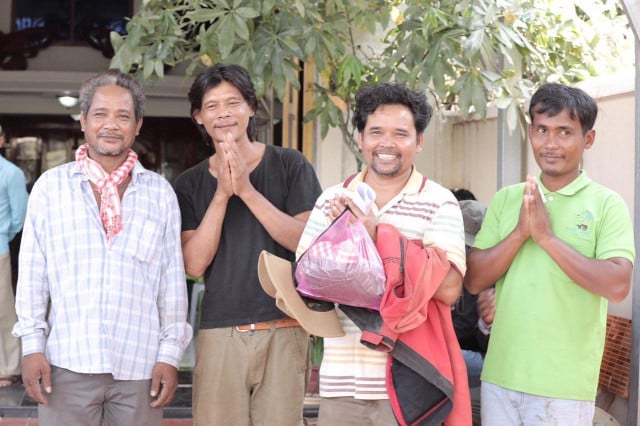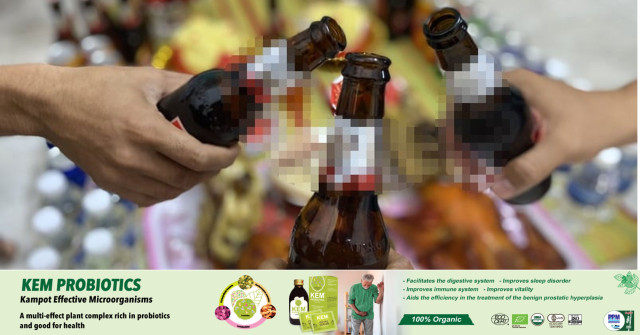Indonesia: Local School Sows the Seeds of Food Wisdom
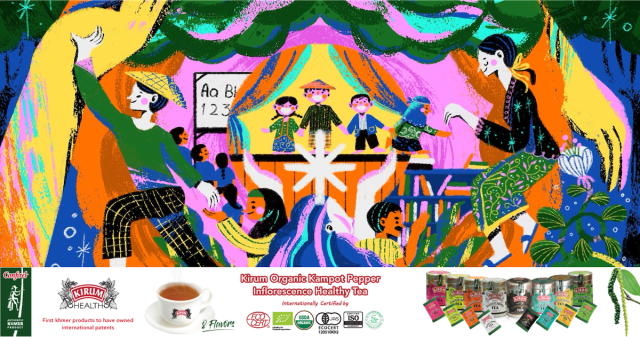
- By Joan Aurelia Rumengan | Reporting Asean
- January 6, 2024 6:11 PM
JAKARTA | “I bring a very big sack of delicious wheat for all of you," Buto Trigo, a monster with a scary set of three eyes, told her audience of young people at an open-air theatre performance in Yogyakarta, Indonesia. "It's good to fry or steam. Try it! Your homemade cooking will look beautiful," she said, likening its beauty to that of the sinister queen she is allied to.
In a booming voice and aggressive tone, Buto Trigo, which translates into 'wheat monster' in Javanese, told the crowd: “Eat it for free! I bring this from a faraway land. Take as much as you can."
Buto Trigo's invitation to freely take the wheat, however, was not exactly reassuring. It is part of the story, told in this play done by the Yogyakarta-based Sekolah Pagesangan, of how food is not just a commodity but a resource deeply woven into a community's culture, identity and a more sustainable way of life, not least in this time of global climate crisis.
In the performance 'Kisah Biyung Umbi' (The Story of the Mother of the Tuber), youngsters learn about how over time, their own community in Wintaos, located in Gunung Kidul regency in Yogyakarta, changed its dietary habits away from tubers - their traditional food - and took up what has been promoted as 'better' and more modern food such as rice and wheat-based foods.
“The main aim of this performance was to introduce our local food to the children. We also want this performance to be a lesson for the audience,” said 19-year-old Heni, director of 'Kisah Biyung Umbi' and a facilitator at Sekolah Pagesangan, a non-formal learning group that works with children on sustainable living, food and disaster resilience.
Performed by a cast of 26 students from 8 to 17 years old, the performance by the children's theatre of Sekolah Pagesangan begins with six food fairies who take turns introducing themselves and describing their nutritional benefits. These fairies are named after plants that abound in Wintaos – tiwul (cassava), garut (arrowroot), gembili, kimpul, suwek and ganyong.
Locals used to have these as staples, the performance narrator says, until Buto Trigo and the queen that rules Wintaos, persuaded them that food staples from outside the community, like wheat and rice, were better and a symbol of progress.
This shift away from traditional diets and the diversity these foods offer did not happen only in Wintaos, but across Indonesia. Today, rice has become the staple food across this archipelagic country of nearly 279 million people - although it is not the traditional food for many among its diverse mix of ethnicities and cultures.
Rice became Indonesians' staple in 1966-1998, a period called the New Order regime under former dictator Suharto.
As part of his ambitious modernisation plans, Suharto prioritized the farming sector in 1966 and aimed for a food revolution, as the Ministry of Education, Culture, Research, and Technology site says. In the 1970s and 1980s, his regime made huge investments in rice farming. In 1985, the Indonesian government reached self-sufficiency in rice for the first time - an achievement that earned Suharto an award from the United Nations.
Since that time, rice has been taken to be the main staple across the country. 'You haven't eaten yet if you haven't had rice,' goes a famous motto from the New Order era. Many Indonesians have internalized this habit, which is still quite common today.
These days too, there are efforts underway to improve food security, through the cultivation of local foods through the food estate program that the Widodo government began in 2020. This involves planting chili, rice, cassava, corn, bean, and potato in large-scale plantations in provinces such as Central Borneo, North Sumatra, East Nusa Tenggara, Yogyakarta, West Java, Central Java, East Java, and Papua.
But problems in the food estate program, including disruptions it is causing to local communties' way of life, have been widely reported.
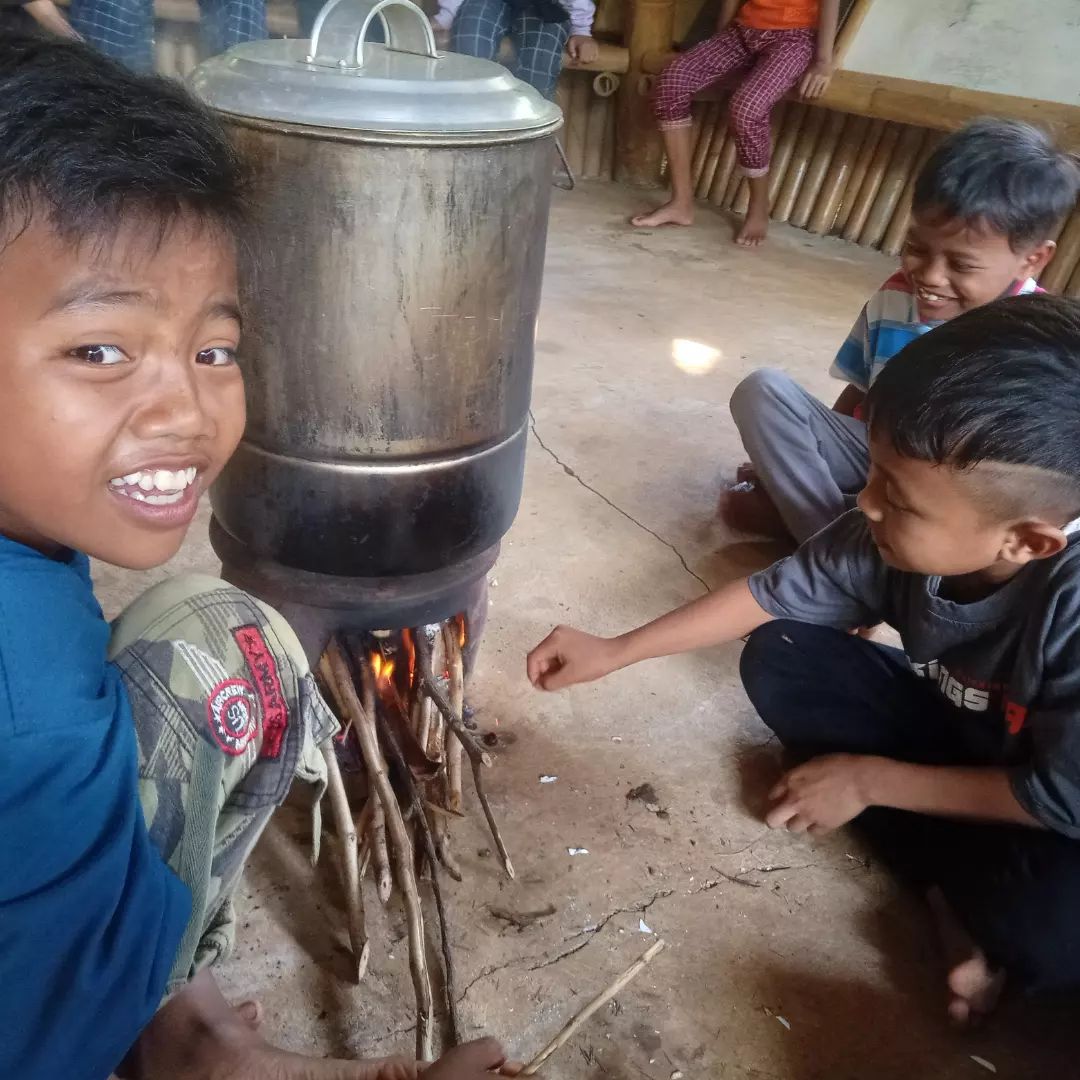
In October 2023, Fian Indonesia, which advocates for the right to adequate food and nutrition, reported that locals in Papua, Indonesia's easternmost province, were having difficulties in growing local food because they had to cultivate crops assigned by food estate projects. Villagers were becoming disconnected from their land, and some have started eating ‘modern foods' like instant noodles, an ultra-processed food, Fian Indonesia said.
Earlier in the year, a field investigation by Indonesian environmental groups and BBC Indonesia in Central Kalimantan province - meant to be Indonesia's new rice and cassava production hub – found abandoned plantations there. Some had withering crops, and in some areas, seeds and pesticides given to villagers had not been used. In March, BBC Indonesia news described the food estate program as a "failure" in parts of Central Kalimantan, reporting that no harvest had been made from 17,000 hectares of new rice fields there.
Pantau Gambut, a civil society group focusing on peatlands that was part of the investigation, described flooding in food estate plantations and said that indigenous Dayak people in Central Kalimantan were being forced to change their native farming methods due to the food estate project.
In these uneasy circumstances around farming and food, Sekolah Pagesangan is a homegrown voice that educates children on preserving their land and their culture, planting local food – and celebrating their roots. Sekolah means 'school' and 'pagesangan' comes from the Javanese word 'gesang', or 'life'.
Diah Widuretno, an environment enthusiast and activist who started the alternative school in 2008, says her mission is to keep the children connected with their essential needs: farming and food.
Formal education, Diah feels, has disconnected Indonesia's children from their roots. The majority of young people in Wintaos want to leave their villages and be urban workers, a trend that means a decline in the number of locals who take up farming like their elders.
Every weekend, Sekolah Pagesangan's students are busy with activities such as cooking native dishes, going on farm expeditions to learn to identify various types of plants, holding cooking competitions around local dishes, making natural dyes, storytelling – and practising and staging theatre performances like 'Kisah Biyung Umbi'.
“All the programs were initiated by the students. We always ask them, 'what things do you want to learn?'," Diah said in an online interview.
Students learn about the history of their village, as well as entrepreneurship, writing and documenting their food system, and getting to know their own potential for living more sustainably.
In September, their activities included cooking local grains such as adlay. “Kids nowadays don't want to eat adlay. They don't like it. We try to find a way so that they want to eat it by cooking it together. We made adlay porridge,” said Heni, the director of the theater performance on tubers.
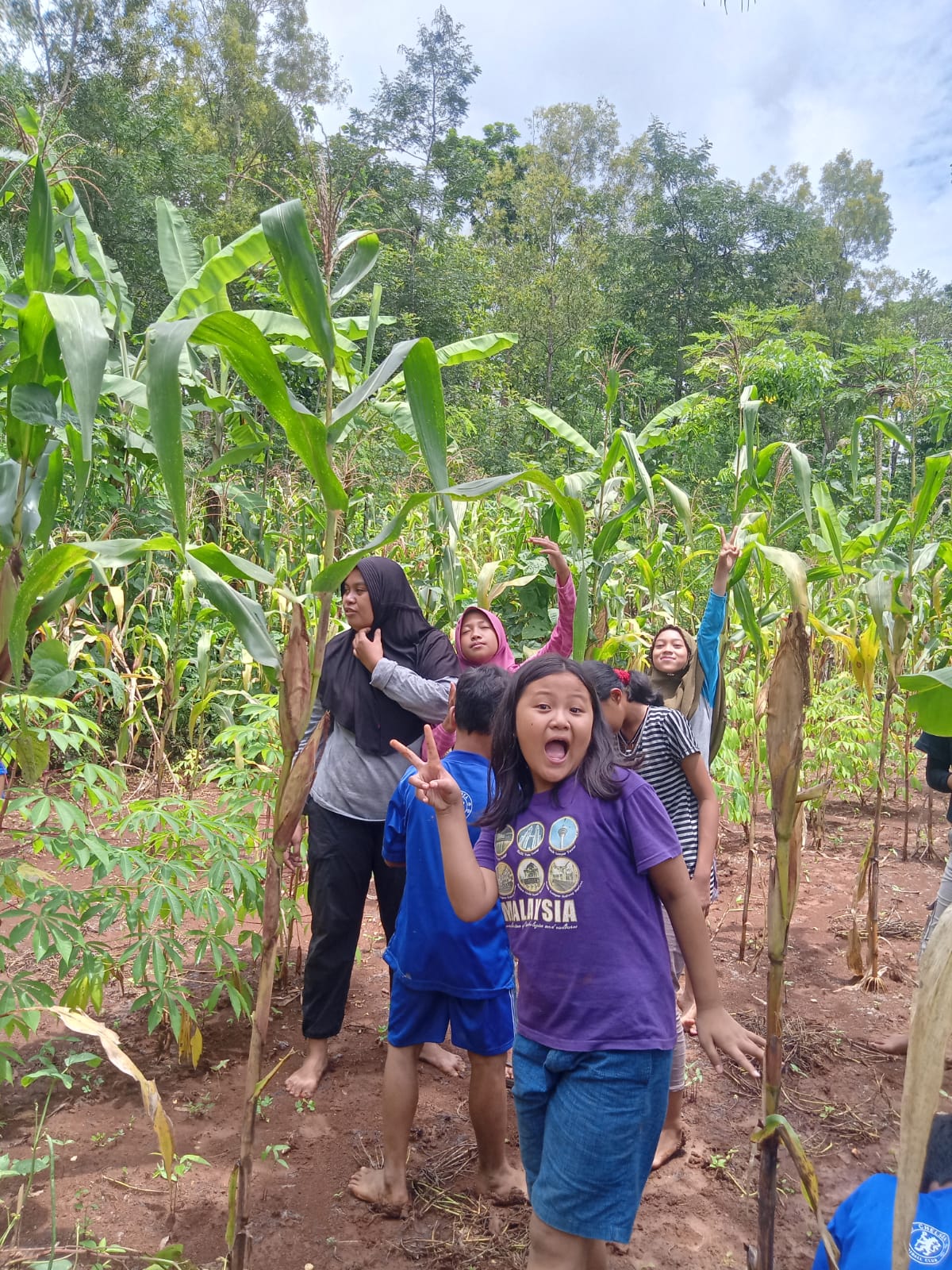
“I always wanted to be a teacher. I do not want to live outside my village," said Heni, who has been with Sekolah Pagesangan since she was in junior high school. "I want to farm at my parents' land in Wintaos,” she said, her voice hopeful.
Like Heni, 24-year-old Murni says she finds meaning in her work, which involves leading the school's group of women farmers. “I am the only person of this age who's still with Sekolah Pagesangan. The others have already moved to the city,” said Murni, who joined the school as an elementary student. She also manages its store, whose food products from the village farm are sold in big cities such as Jakarta, Surabaya, and Bali.
It was still the dry season in Wintaos when Reporting Asean spoke to Murni in September, the time of year that she and other farmers start to plant tubers that can survive the drier weather. Said Murni: “I don't think the climate crisis will impact us because we found a way how to plant and how to make ourselves self-sufficient in all seasons."






